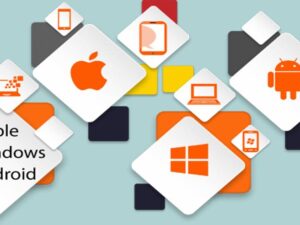Benefits of Developing Native Mobile Application
Building a mobile application has turned into a first concern for some organizations, yet it’s regularly hard to pick a development approach as the lines between the different choices are turning out to be progressively obscured. This article by App Development Company in Navi Mumbai will go further into Native Mobile Application Advancement and the advantages of picking this specific improvement approach.
What Is Native Mobile Application Improvement?
Native Mobile application advancement entails creating applications for specific mobile operating systems, which clients can access through specialized application stores (for example, the Application Store or Google Play). Assuming that you expect to build an application for iOS, application engineers will utilize programming dialects like Objective-C or Swift. Conversely, developing for Android requires the programming dialects Java or Kotlin.
Both Apple and Google give application engineers their own development tools, interface components, and SDK. Most organisations will put money into native mobile application development on account of the heap of advantages presented in contrast with different sorts of applications like Hybrid or Web. Because mobile programming is increasingly becoming a requirement for businesses, businesses should be well-versed in the benefits and drawbacks of selecting an application development strategy. Here are the vital advantages of Native Mobile application development:
5 Benefits of Developing Native Mobile Application
1.Native Applications Have the Best Presentation
With Native Mobile application development, the application is made and optimized for a particular stage. Therefore, the application exhibits an incredibly undeniable degree of performance. Native applications are extremely quick and responsive because they are designed for that specific stage and are compiled utilising the platforms centre programming language and APIs.Subsequently, the application is significantly more effective. The device saves the application, allowing the product to take use of the device’s handling speed. As clients explore through a Native Mobileapplication, the content and visual components are as of now put away on their phone, which means load times are speedy.
2. Native Applications Are Safer
Web applications depend on various programmes and fundamental innovations like JavaScript, HTML5, and CSS. Fostering a Native Mobileapplication is an incredible method for ensuring your clients’ solid information assurance.
3. Native Applications Are More Interactive And Instinctive
Native Mobile applications run a lot smoother in regards to client information and results. These kinds of applications acquire their gadgets’ operating system interfaces, making them look and feel like a coordinated piece of the gadget.
The most favorable advantage for Native Mobile applications is the superior client experience. Native applications are made explicitly for an operating system. They adhere to the rules that, at last, upgrade and adjust the client experience with the particular operating system. Thus, the progression of the application is more normal as they have explicit UI guidelines for every stage. This permits the client to gain proficiency with the application by, for example, erasing a element rapidly.
4. Native applications give developers access to the full range of gadget capabilities.
Native applications are created for their specific stage, taking full advantage of software and OS features. These applications can directly get to the equipment of the gadget like the GPS, camera, amplifier, and so on, so they are quicker in execution, which eventually brings about a better client experience. Message pop-ups are one more tremendous benefit of picking native application development. Message pop-ups go through the iOS server (APNS), which is where you want your application pack ID. Same with Google’s Cloud Messaging (GCM).
5. Native Application Development will generally have fewer bugs as it progresses.
Keeping two unique applications in one codebase is much more difficult than keeping two applications in two codebases. With native application development, you have fewer conditions for bugs to happen on the grounds that you’re not depending on a cross-platform tool like Xamarin or Cordova. Hybrid applications access hardware through a bridge, which frequently slows advancement down and can add up to a baffling client experience.
When new versions of Android and iOS are released, this problem is clear. Native application developers have permit to software development kits (SDK) to begin building their applications with most recent features. Clients of native programmes approach a new platform feature once the working framework is updated as a result of this lag time.
The disadvantage of having to sit tight for the third-gathering developer of the hybrid apparatus to implement the bridge to the new operating system highlights. With hybrid application improvement, we are dependent upon a cross-platform advancement device like Xamarin or Cordova. Each time new highlights are delivered in the UIkit, we want to trust that the tool will uphold it. When developing a hybrid application, there is an additional layer over which you have no control, which can raise the chances of issues occurring. Bugs are a huge worry for hybrid application development when working with the most recent feature that have been delivered for a specific operating system. This is a fundamental and frequently ignored piece of generating loyalty among clients.
Hope you are clear with Benefits of Developing Native Mobile Application.











